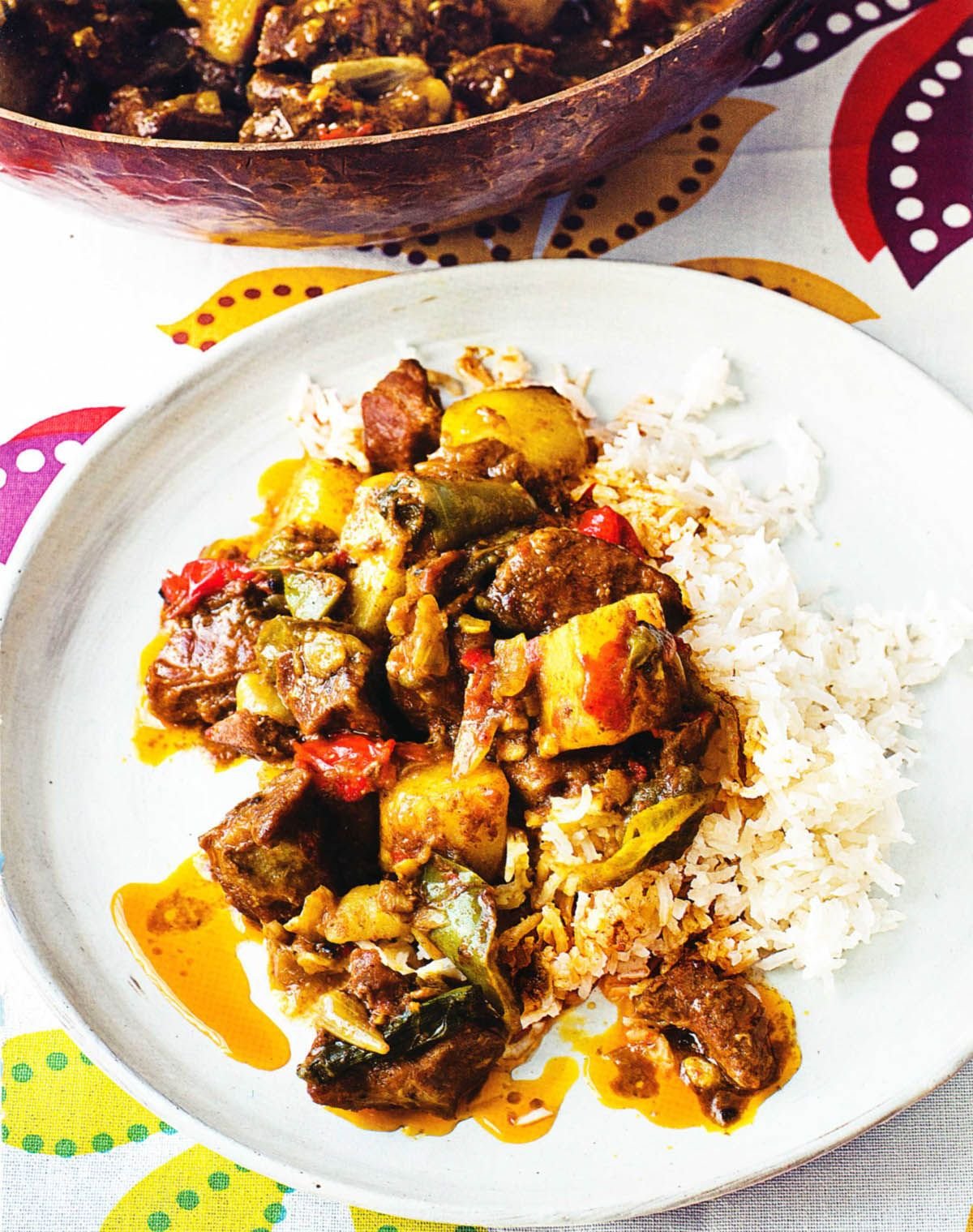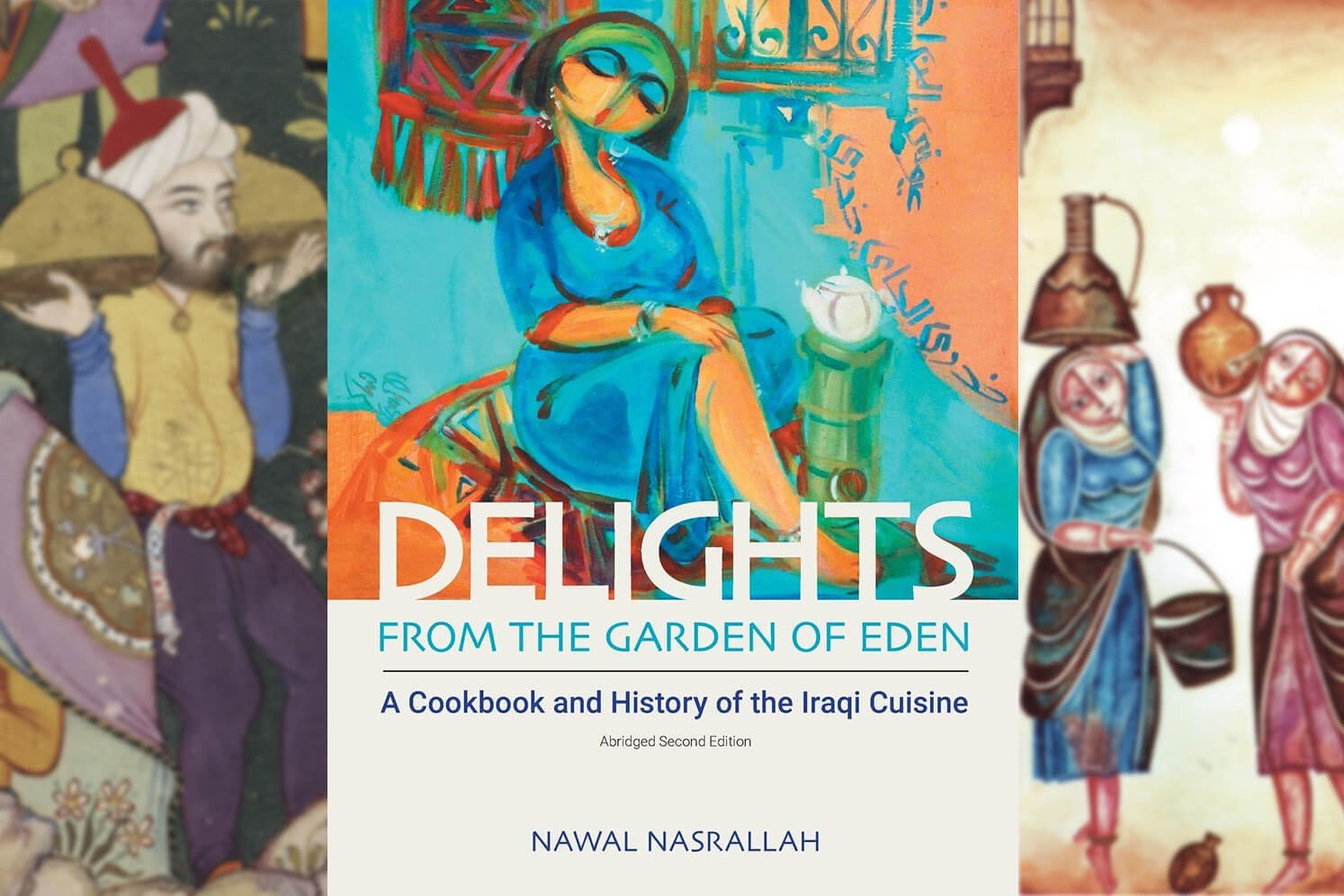Consuming passions: goat
By Susan Low
There are some foods you eat that grab hold of your memory and just won’t let go. One of the most memorable things I’ve ever had was goat roti on the Caribbean island of Anguilla. The meat had been marinated in an alchemical mix of spices (I detected allspice, black pepper, bay, coconut, turmeric, and a hit of chilli), slow-cooked on the bone until succulent, then wrapped up in a fluffy roti – all deliciously messy to eat. It was some 20 years ago but I can still taste it.
Wherever I travel, it’s my ‘goat-to’ dish: roast kid in Greece, goat curry in Goa, slow-cooked kid in Spain… Closer to home, if goat is on a restaurant menu, it’s on my plate.
I love cooking with goat, too. It can cope with whatever spices you can throw at it and emerge tender and flavorful at the end of long, slow cooking. It’s a best-kept secret that really shouldn’t be secret at all.
This month is ‘Goatober’ – a worldwide initiative that aims to prolong the lives of billy goats and to encourage more people around the world to cook with it. It’s the ideal opportunity to learn more about (and cook with) goat meat.
An ethical choice
The ethical argument for eating goat is analogous to that for eating veal, and for the same reason. Male goats can’t produce milk, obviously, so there is no place for them in the dairy industry. As a result, they’re routinely euthanized shortly after birth, which is a terrible waste.
Raising young goats to maturity for their meat is a far less wasteful – and more respectful – way to treat these animals. There are some 46,000 dairy goats in the UK, 370,000 in the US, and about 30,000 in Australia. As with the dairy cow industry, if you eat goat’s cheese or drink goat’s milk, you should consider eating goat meat. And that’s the whole point of Goatober, which draws together chefs, restaurateurs, butchers, farmers, and consumers who want to eat more sustainably and possibly try something new.
There are similar initiatives, too. In Bristol, England, an urban farming collective called Street Goat got its start in 2015. It’s a community-run goat dairy that produces milk for 30 households and a grazing project that takes male goats from dairy farms and raises them to maturity for meat.
Goats were the first livestock animals to be domesticated, as early as 10,000 years ago in what is now western Iran, says New Scientist, and these animals played an important role in our ancestors’ transformation from hunter-gatherers to settled farmers. Humans and goats have a long, shared history, so I’d argue that these animals are worthy of our respect.
Need another reason to take the goat plunge? Goat meat is good for you. According to the USDA, goat is lower in calories, fat, and cholesterol than chicken, beef, pork, and lamb. It also has higher levels of iron than all those meats, too. If you have a favourite lamb recipe, try making it with goat next time. Just about any long-cooked dish made with lamb can be made with goat and taste at least as good as a result.
Putting goat on your dinnerplate
You might be surprised to hear that goats found their way to the Americas on board Columbus’s ships. Historian Andrew F Smith says that, back in the 1600s, citizens of colonial Massachusetts and Jamestown prized both the milk and meat of goats. Goats may have been part of US history since its very beginning, but goat meat hasn’t been all that popular in the US – or the UK and Antipodes, for that matter, compared to chicken, beef, and pork.
It’s time for that to change, to give goat meat a re-think on ethical and sustainable grounds – and for pure eating pleasure, too. Cooks in many other parts of the world know just how brilliant goat meat is to cook with.
China, India, Pakistan, Nigeria, and Bangladesh are the top five countries in the world for goat meat production and cooks from the Caribbean to Greece and from the Philippines to Ghana turn goat meat into some of the best food you’ll taste anywhere. Meanwhile, I’m still obsessed with that goat roti in Anguilla.
Try a world of flavor with some of ckbk’s goat recipes
Do you have a consuming passion, a dish, food, or ingredient that you feel strongly about? Let us know by emailing us at hello@ckbk.com with the subject line ‘Consuming passions’ – and you can tell others about it in a guest post on ckbk.
Where to buy goat
Unless you are lucky, goat may not be available at your local supermarket, but there are plenty of online options, a selection of which are listed below. Also it is worth asking at your local Halal butchers, as they often sell goat meat but it may not be on display.
UK
Cabrito (national)
Chestnut Meats (national)
Farm Direct (London delivery)
USA
Canada
Australia
New Zealand
Premium Game (wild goat)
More features from ckbk
Try out some thrifty, healthy, and fun recipes for starting-out cooks, using simple techniques.
Cookbooks that showcase Australia’s chefs, restaurants, recipes and cooking styles.
Nawal Nasrallah is an expert on medieval Arab cuisine, and on modern Iraqi cuisine.






